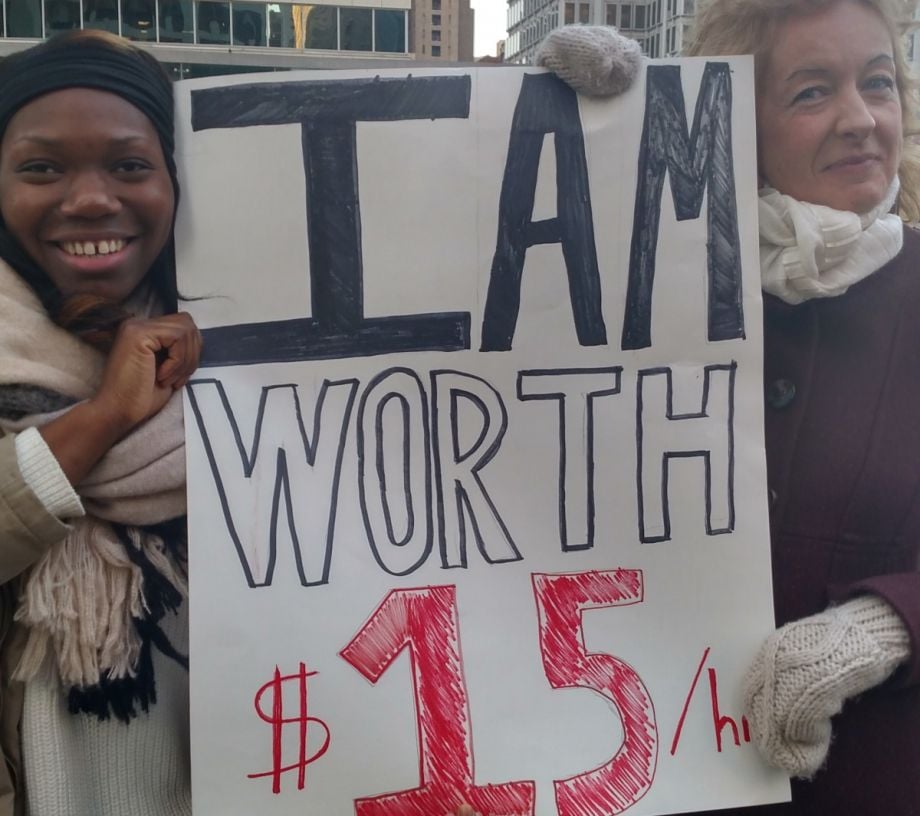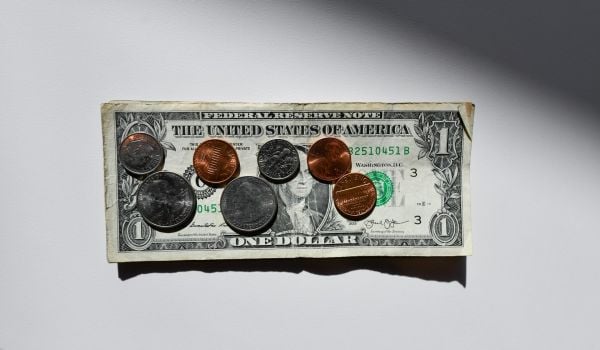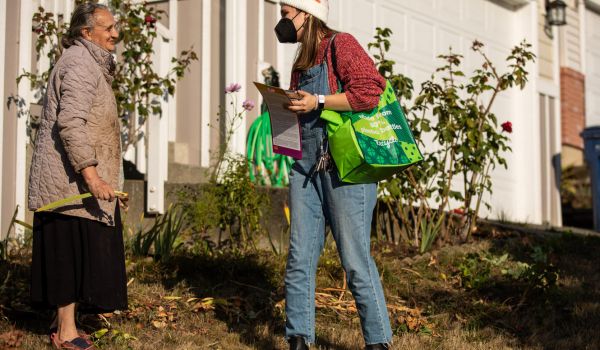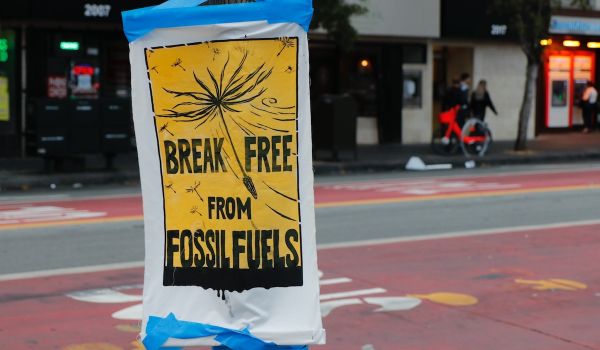The federal minimum wage has stagnated and no increase is likely in the 114th Congress. But lack of progress at the national level has prompted state and city governments to take action. City-level minimum wage increases are a relatively recent phenomena. Santa Fe and San Francisco were among the first in the 2000s, but many others followed. In 2014, an increasing number of cities took the fight into their own hands; here’s a look at how and where those battles will continue this year.
Los Angeles
L.A. passed a new law establishing a minimum wage of $15.37 for hotel workers, a profession long dogged by poverty-level incomes. The ordinance was pushed by the Los Angeles Alliance for a New Economy (LAANE), a kind of activist think tank formed by service sector unions like SEIU and Unite Here (which, not coincidentally, represents hotel workers).
The law can be interpreted as another sign that labor is trending away from the old collective bargaining model, but it is also the starting round in a campaign for a citywide wage of similar proportions. Mayor Eric Garcetti plans to push for a $13.25 minimum wage, while LAANE, unions and progressive council people are pushing for $15.25.
Louisville
Southern elites have long repressed wages in their region as a means to lure industry from other parts of America. Minimum wages in some states — like Arkansas — have actually been kept below the federal standard. But a recent vote in Louisville, Kentucky, seems to indicate that Southern cities controlled by Democrats could be willing to buck these historical trends.
On December 18th, all of the Democrats on the Metropolitan Council voted to increase the Jefferson County minimum wage to $9 by 2017, when it will be indexed to inflation. (Louisville merged with its surrounding county in 2003.) The Council originally pushed for an increase to $10.10, but Mayor Greg Fischer, also a Democrat, threatened a veto and countered with a proposal for $8.75. He has agreed to sign the compromise. All of the Republican Council members voted against the hike and insist that the very idea of a city-level increase may be unconstitutional. Business interests have expressed a desire to challenge the policy in court.
New York City
Mayor Bill de Blasio’s victory was hailed as a sign of an ascendant urban populism. But the hero found many of his efforts stymied by the Democrat who rules in Albany, the anti-labor, business-friendly Andrew Cuomo. In addition to blocking de Blasio’s attempts to tax the rich, the Governor also rejected the very concept of a minimum wage increase for the city that the new mayor promised. New York state law prevents individual cities from raising their wages above that of the state, but de Blasio hoped for an exemption for New York City —where the cost of living is notoriously high. (In lieu of broader action, the Mayor has increased the city’s “living wage” requirement for those who contract with New York.)
The issue became one the many policies that Cuomo half-heartedly agreed to compromise on during his reelection campaign this year, as a sop to his left flank. Although he agreed to increase the statewide minimum to $10.10, with a provision that New York City be allowed to set its own rate, Republican gains in the legislature make this outcome unlikely as does Cuomo’s evident distaste for taking action before new members are seated.
Philadelphia
In 2006, the last time Pennsylvania raised the minimum wage, a provision was slipped into the bill preempting cities from passing their own locally targeted hikes. Although the law’s language seems clear on this point, activists with the group 15 Now insist that there may be a loophole and that Philadelphia could potentially increase its minimum wage. If it did so, the matter would wind up in court, but 15 Now says it’s a fight that could be won.
While some remain skeptical of the group’s loophole claims, numerous politicians have tried to raise the minimum wage banner ahead of citywide elections in 2015. City councilman Kenyatta Johnson told the Philadelphia Inquirer that he might be willing to introduce such legislation, which prompted his opponent, developer Ori Feibush, to announce that he too supported a $15 minimum wage. In mid-December, Johnson introduced a resolution, approved unanimously, establishing a date for a hearing on a $15 minimum wage for Philadelphia and, presumably, whether the loophole is worth testing.
Portland, Maine
In Portland the push for a higher minimum wage stems from Mayor Michael Brennan’s office. He initially proposed an increase from the state’s current $7.50 standard to $9.50 on January 1st, followed by incremental increases to $10.68 by 2017, after which it would be indexed to inflation. To placate business interests, and especially the restaurant lobby, Brennan agreed to allow for the continuation of a separate standard for tipped employees, who now earn half the minimum wage of their non-tipped counterparts.
But Brennan’s plans have been delayed in City Council. The Mayor now says he does not expect the policy to be considered until February. This delayed measure has been strengthened, however, to extend to those 16 and above and to allow funding for an enforcement position.
Washington, D.C.
In January 2014, then-D.C. Mayor Vincent Gray signed a new law that raised the city’s minimum wage to $11.50 by 2016. The increase’s passage came in the wake of Gray’s veto of a bill that would have required Walmart and other large-scale retailers to increase their wages, a policy that Gray’s replacement, Mayor Muriel Bowser, has also vowed to oppose.
In October, the alt-labor group Restaurant Opportunities Center began pushing for legislation to increase the city’s minimum wage to $15 an hour and scrap the separate wage for tipped workers. It is unclear whether they will try to get it done legislatively or through a ballot initiative process.
The Equity Factor is made possible with the support of the Surdna Foundation.


















